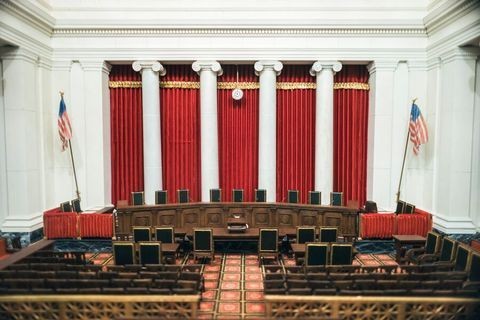U.K. Government Faces Urgent Pressure to Reform Insolvency Law
Client Alert | 2 min read | 03.26.20
In these unprecedented times, the U.K. government is seeking to preserve U.K. businesses and has already introduced significant measures to achieve that aim, including:
- Deferring VAT payments.
- Introducing a moratorium to prevent evictions from commercial properties as a result failure to pay rent.
- Agreeing to pay wages of up to £2,500 per month under the Coronavirus Jobs Retention Scheme.
On March 25, 2020, HM Treasury also wrote to the U.K. banking sector, encouraging them to continue to support U.K. business and to work together with HM Treasury and the regulators “to mitigate the longer lasting effects of COVID-19 on jobs, growth and the U.K. economy”. That involves U.K. lenders offering help and flexibility to their borrowers and maintaining a willingness to extend lending despite the uncertain economic outlook. In summary, HM Treasury states “We must ensure that firms whose business models were viable before this crisis remain viable once it is over.”
Against this background, the government is facing pressure to go further and to pass emergency legislation to change U.K. insolvency laws to afford greater protection to companies and directors against insolvency proceedings. The new measures may include:
- Removing a creditors’ ability to present a winding up petition and to introduce a 90-day moratorium against creditor action, to be initiated by directors stating that the company is facing temporary liquidity or operational challenges as a result of the coronavirus outbreak.
- Extending the 10-day moratorium which arises upon the filing by directors of a Notice of Intention to Appoint Administrators.
- Amending wrongful trading legislation to protect directors who had acted reasonably in managing the company’s affairs but had underestimated the negative impact the COVID-19 outbreak would have on the performance of their business.
The aim of introducing or extending the moratorium periods is to allow businesses a reasonable time, free of the threat of creditor action, to put in place measures to assist them in overcoming the temporary liquidity problem and to continue to trade. Such measures could include smaller businesses availing themselves of the government-backed facilities available under the Coronavirus Business Interruption Loan Scheme (see Crowell & Moring’s Update on the Coronavirus Business Interruption Loan Scheme). The measures would also allow larger businesses to participate in the COVID Corporate Financing Facility, restructure their facilities and businesses or to put in place standstill agreements with their lenders.
The suggested amendments to the wrongful trading legislation would protect directors from inadvertent wrongful trading in a situation where their business’s performance has been impacted almost overnight as a result of the lockdown imposed by the U.K. Government. Clearly, such amendments would have to be carefully worded, but given the lightning speed at which U.K. business has been affected by the lockdown measures, it would seem perverse to hold a director of a business liable for wrongful trading during a period when, regardless of how well they had previously managed their business, it has cratered as a result of factors entirely beyond their control.
We are Here to Help
If you would like to discuss or obtain guidance on any of the points raised in this Alert, please contact any of our lawyers whose details appear below.
Contacts
Insights
Client Alert | 6 min read | 02.27.26
The U.S. Supreme Court’s February 20, 2026, opinion in Learning Resources. v. Trump (decided with Trump v. V.O.S. Selections), holding that the President lacks authority to impose tariffs under the International Emergency Economic Powers Act (IEEPA), is notable for many reasons — including its practical impact on the many U.S. companies who paid steep tariffs on global imports and may now be able to recover by filing suit before the Court of International Trade (CIT). That possibility and the key reasons for the High Court’s decision are discussed in our recent alert on this momentous decision.
Client Alert | 4 min read | 02.27.26
New Jersey Expands FLA Protections Effective July 2026: What Employers Need to Know
Client Alert | 3 min read | 02.26.26
Client Alert | 4 min read | 02.26.26






